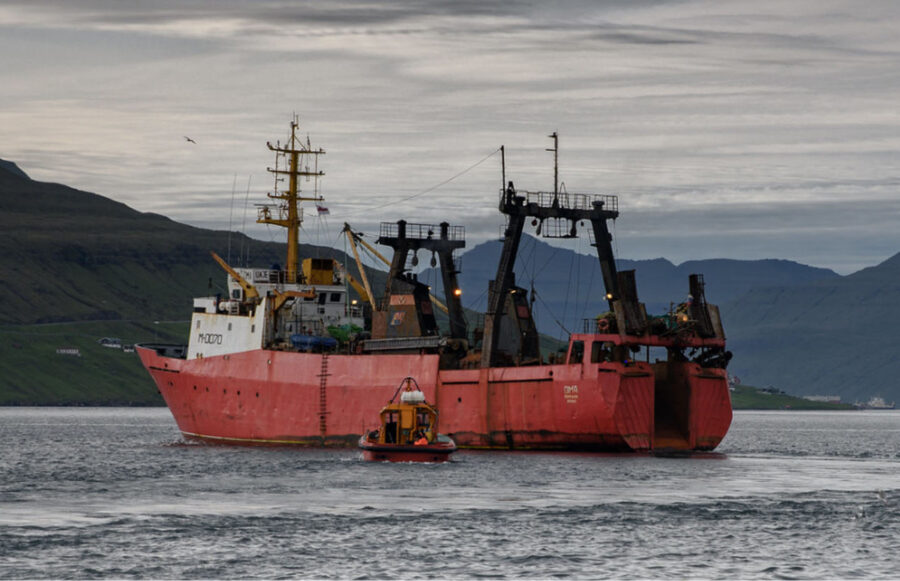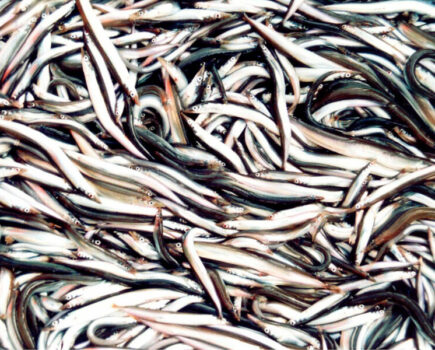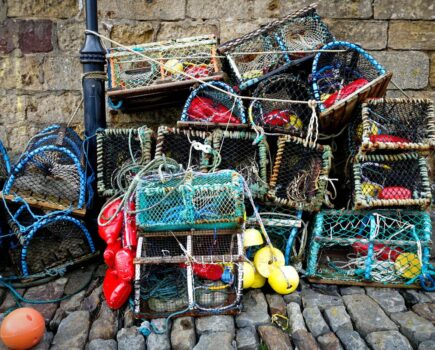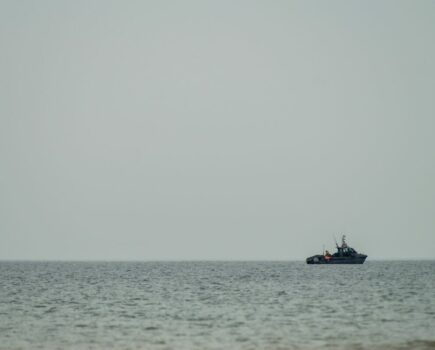The Faroe Islands announced last week what it claimed was an ‘extension of a port ban’ on Russian fishing vessels – but this does not apply to vessels that swapped quota with Faroe in the widely criticised deal, made earlier this year, of Russian whitefish in exchange for ‘Faroese’ pelagic quotas.
The official Faroe government press release, copied word for word across many news outlets and services, linked the restrictions to a statement about an extension of support to Ukraine to rebuild its infrastructure. However, local sources suggested that the new restrictions were as much to do with concerns about Russian fishing vessels being found with military-grade radio communications aboard, and recent sightings of ‘spy ships’ in the Baltic and North seas, and off northern Norway.
The quota and access deal between Faroe and Russia, which led to Russian pelagic freezer trawlers fishing in the shared UK/Faroe zone, was widely criticised in 2022. As FN reported last year, the ‘swap’ involved pelagic quotas claimed by Faroe in excess of its historic catch share, that it had unilaterally issued itself – even when its fleet was unable to catch the fish. However, an expansion of this arrangement in 2023 has largely passed unnoticed.
In the 2023 access deal, the Faroe government agreed to license an additional five Russian vessels to fish in Faroese waters in a new ‘exploratory deepwater fishery’, on top of a guaranteed minimum of 29 Russian pelagic vessels being granted access to Faroese waters.
In a further expansion of co-operation between the two countries, the parties also agreed to further discussions about an in-year agreement to extend the swap to allow additional Faroese vessels to fish for capelin in Russian waters, in exchange for further Russian vessels fishing in Faroese waters for saithe.
The restrictions announced by Faroe last week stated that the government would ‘impose further restrictive measures against Russia by considerably limiting port access for Russian fishing vessels’.
“Only fishing vessels exclusively conducting fisheries under the bilateral agreement between the Faroe Islands and Russia will be allowed to enter Faroese ports. The activities of Russian fishing vessels in port will be restricted to crew change, bunkering, provisioning, landing and transhipment,” with ‘restrictions’ on the purchase of certain types of goods, it said. Other Russian ships – thought to be reefers collecting frozen-at-sea fish from Russian trawlers with licences to fish in Faroese waters – will be banned from Faroe’s ports. Faroe has long benefited from access to Russian markets for pelagic fish, following the 2014 EU ban on pelagic fish exports to Russia as part of sanctions following the 2014 invasion of Crimea.
After initial support in Faroe for continued exports of fish to Russia after the invasion of Ukraine, and the continuation of Faroe acting as a hub for transhipment of Russian fish, and as a major repair centre, the issue began to divide opinion in Faroe ahead of last year’s elections, which were held two weeks after the 2023 fishing deal with Russia was signed.
This story was taken from the latest issue of Fishing News. For more up-to-date and in-depth reports on the UK and Irish commercial fishing sector, subscribe to Fishing News here or buy the latest single issue for just £3.30 here.
Sign up to Fishing News’ FREE e-newsletter here.








